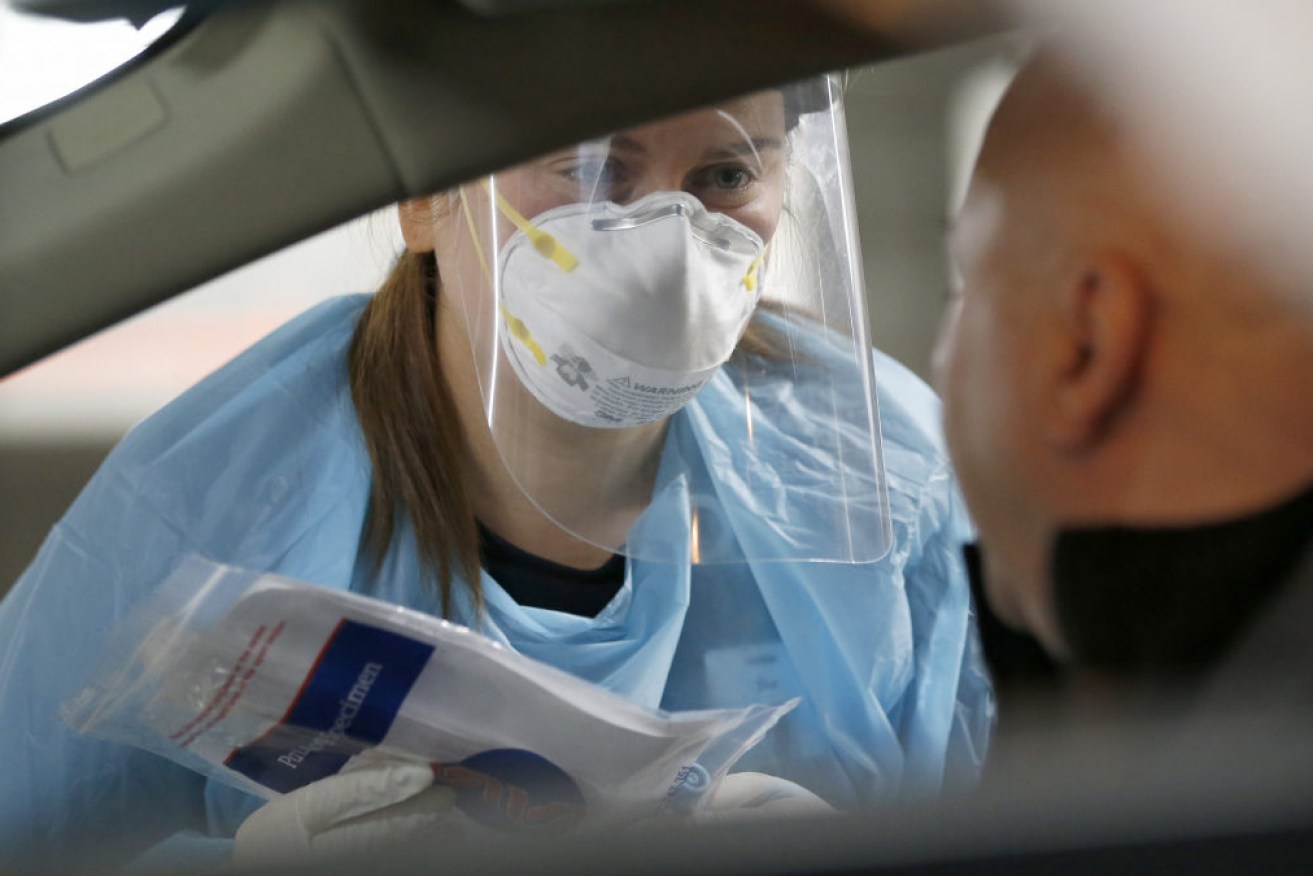Funding injection for coronavirus tests that deliver results in 30 minutes


Coronavirus test results could soon take just 30 minutes using new technology. Photo: Getty
A Melbourne-based company behind a new coronavirus test that delivers results in just 30 minutes has secured a major federal funding boost.
The portable testing kit produced by ZiP Diagnostics can be operated in any location without a medical testing laboratory or technician.
It comes days after researchers at Monash University in Melbourne discovered a way to identify COVID-19 positive cases using blood samples in 20 minutes.
The test was based on commonly used blood-typing methods.
Federal Health Minister Greg Hunt announced the $600,000 grant as part of a series of grants under the $45 million BioMedTech Horizons program.
The grant will allow the biotech company to start manufacturing its on-the-spot coronavirus testing kits earlier than expected.
The low-cost testing devices will be able to be scaled up to produce hundreds of test results per hour.
“We are delighted to receive this BMTH grant as it provides valuable funding for the development of ZiP’s technology and will allow us to secure regulatory approval in a shorter timeframe than originally envisaged,” ZiP technical director Bill Hopper said.
The funding will also enable Australia to supply low to middle-income countries with testing kits as part of a global effort to end the pandemic.
Blood test success
After much talk of the invasive nasal swab test, some Australians might be pleased to hear that the test developed by Monash University requires taking a blood sample instead.
The test can rapidly pick up the coronavirus, as positive cases cause red blood cells to cluster and this is easily identifiable to the naked eye.
Researchers were able to identify COVID-19 cases using just 25 microlitres of plasma from blood samples.
The 10 tests on clinical blood samples involved incubating a person’s plasma or serum with red blood cells previously coated with short peptides, representing pieces of coronavirus.
If the patient sample had antibodies against the virus, these will bind to the peptides and result in “aggregation of the red blood cells”.
Researchers then used gel cards to separate these blood cells from free cells to see a line of aggregated cells – indicating a positive response.








